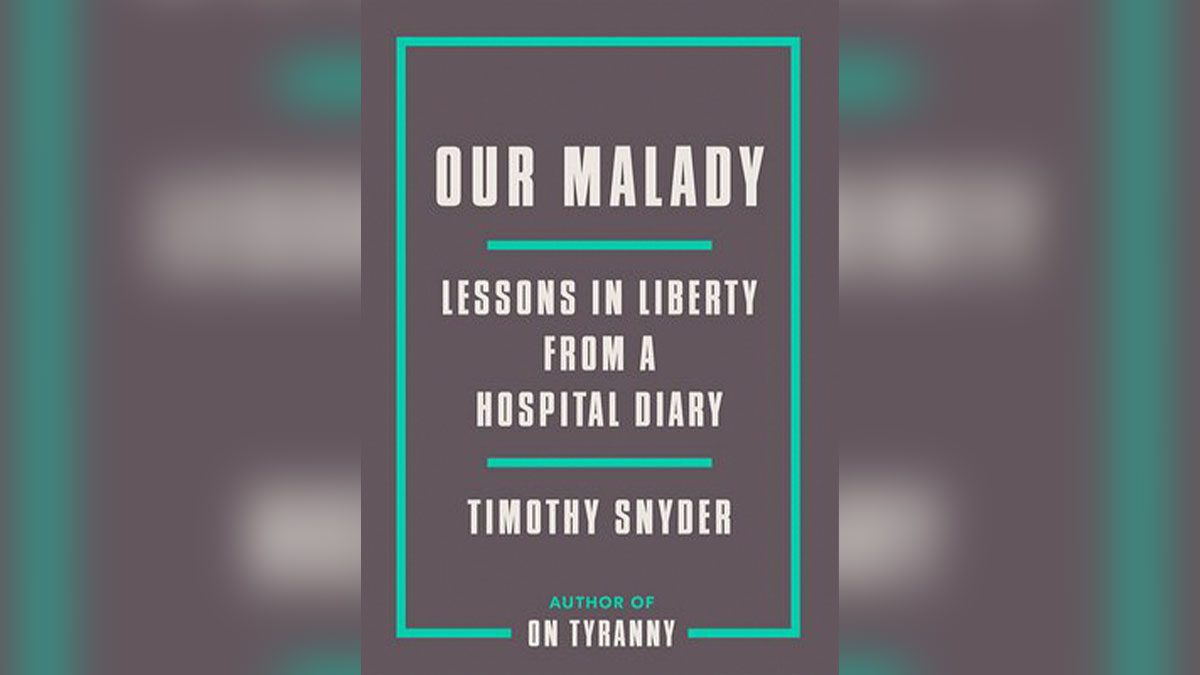Source: Timothy Snyder, Our Malady: Lessons in Liberty from a Hospital Diary (New York: Crown, 2020)
This is a hospital. What are hospitals for?
Perhaps you think that they exist to treat the sick?
Well, some treatment of sick people may take place within hospital walls. But that is incidental. The purpose of hospitals is to make money for the companies that own them.
This is called commercial medicine.
Perhaps you think that doctors are in charge at a hospital? After all, they are the experts.
Doctors may be experts at treating the sick. But remember – treating the sick is not the purpose of a hospital. A hospital is run by company executives, assisted by administrators. These people are also experts, though not at treating the sick. They are experts at making money. Hospital doctors are company employees. It is a condition of their employment that they obey rules and instructions issued by the executives and administrators.
In China doctors are allowed to speak out about dangers to public health only with permission from the authorities. Those who act on their own initiative are summoned by the secret police and sternly warned not to ‘spread rumors’ and ‘disturb social stability.’
That could never happen here, could it? Our freedom of speech as US citizens is guaranteed by the Constitution.
Nevertheless, hospital doctors are company employees – and employers are perfectly entitled to tell their employees what they can and cannot say. During the Covid-19 pandemic doctors and nurses were even fired for bringing their own protective gear to work, since this revealed that hospital stocks were inadequate.
Just-in-Time Delivery
A for-profit hospital can never be prepared for epidemics or other emergencies because it cannot maintain reserves.
To understand the shortage of beds, it helps to think of just-in-time delivery. Companies like to have just enough space for what they need, work with, and sell, not more and not less. For a hospital, the human body is the object that is to be delivered, altered, and shipped away just in time. There should never be too many bodies, or too few. There should be just the right number of bodies on just the right number of beds… No hospital is going to maintain a reserve of beds, protective equipment, or ventilators when other hospitals do not do so’ (pp. 120-121).
Timothy Snyder
In order to maximize throughput, patients are kept in hospital for the shortest possible time. Thus expectant mothers are told not to come to the hospital until their contractions are 3—4 minutes apart, with the result that many give birth unattended, while still on the way. Patients are sent home soon after being operated upon, before it is known whether there are any complications.
Provided the patient has savings or ‘good’ insurance, operations are highly profitable and many operations are performed that are unnecessary or even harmful, such as removal of the womb or tonsils. Much ‘cosmetic’ and ‘sex-change’ surgery also falls into this category. Surgical implants and transplants are also very profitable and of doubtful net benefit to the patient.
Let Timothy Snyder have the last word:
There are creepy moments … when you wonder why something was done or not done, or why some weird evasive phrase was just uttered, or why a doctor or nurse behaved oddly or slipped away. One often has the feeling that there is a hidden logic dictating events, because there is: a logic of profit (p. 64).



